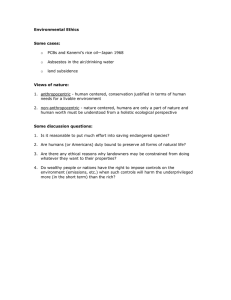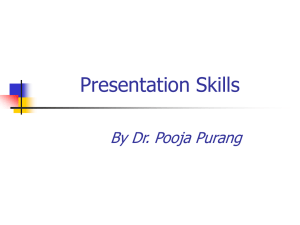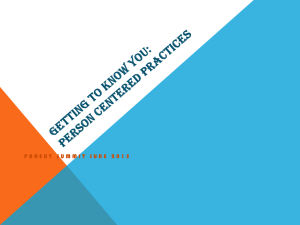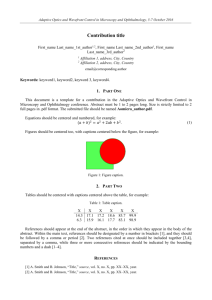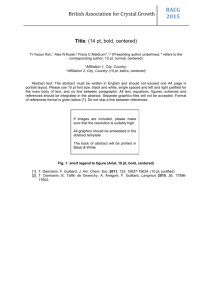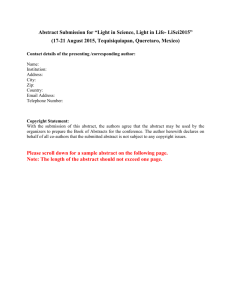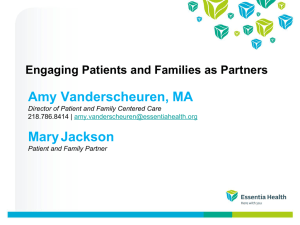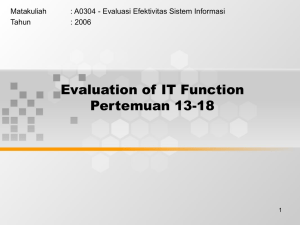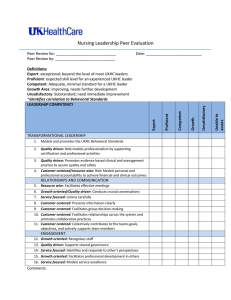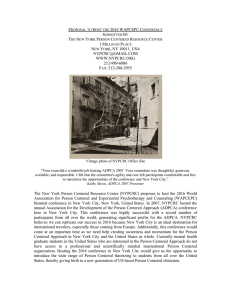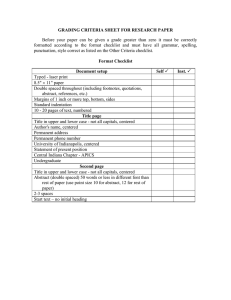Student Centered Learning
advertisement
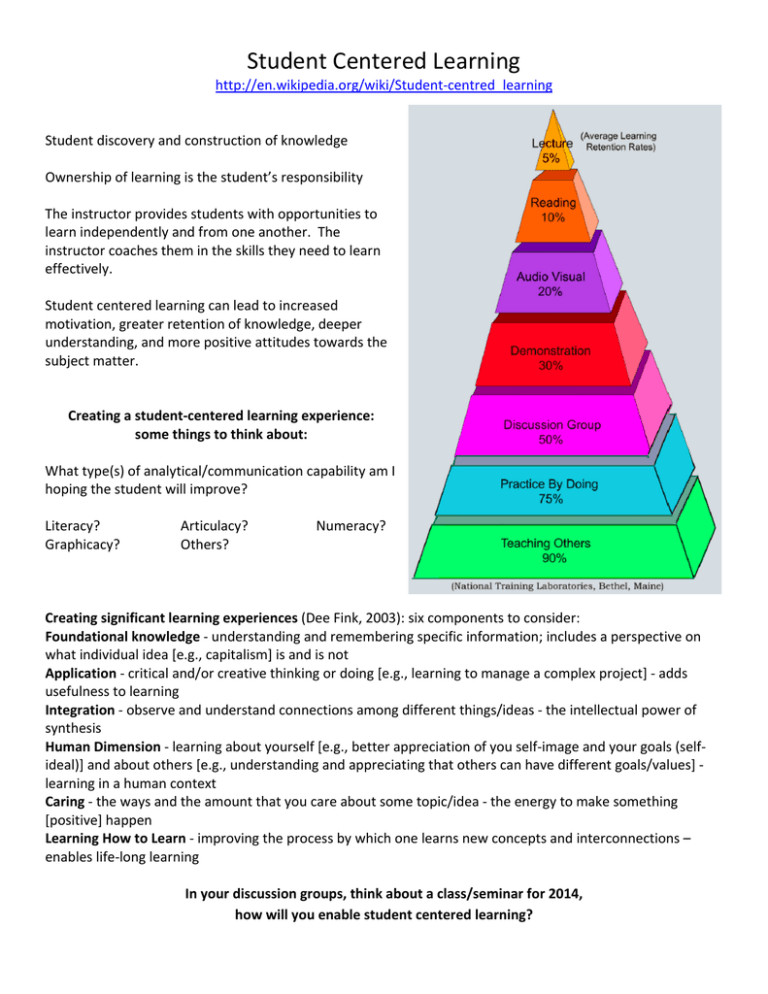
Student Centered Learning http://en.wikipedia.org/wiki/Student‐centred_learning Student discovery and construction of knowledge Ownership of learning is the student’s responsibility The instructor provides students with opportunities to learn independently and from one another. The instructor coaches them in the skills they need to learn effectively. Student centered learning can lead to increased motivation, greater retention of knowledge, deeper understanding, and more positive attitudes towards the subject matter. Creating a student‐centered learning experience: some things to think about: What type(s) of analytical/communication capability am I hoping the student will improve? Literacy? Articulacy? Numeracy? Graphicacy? Others? Creating significant learning experiences (Dee Fink, 2003): six components to consider: Foundational knowledge ‐ understanding and remembering specific information; includes a perspective on what individual idea [e.g., capitalism] is and is not Application ‐ critical and/or creative thinking or doing [e.g., learning to manage a complex project] ‐ adds usefulness to learning Integration ‐ observe and understand connections among different things/ideas ‐ the intellectual power of synthesis Human Dimension ‐ learning about yourself [e.g., better appreciation of you self‐image and your goals (self‐ ideal)] and about others [e.g., understanding and appreciating that others can have different goals/values] ‐ learning in a human context Caring ‐ the ways and the amount that you care about some topic/idea ‐ the energy to make something [positive] happen Learning How to Learn ‐ improving the process by which one learns new concepts and interconnections – enables life‐long learning In your discussion groups, think about a class/seminar for 2014, how will you enable student centered learning?
